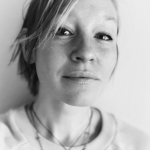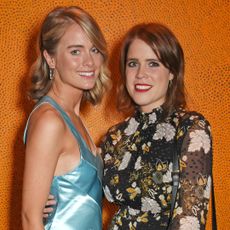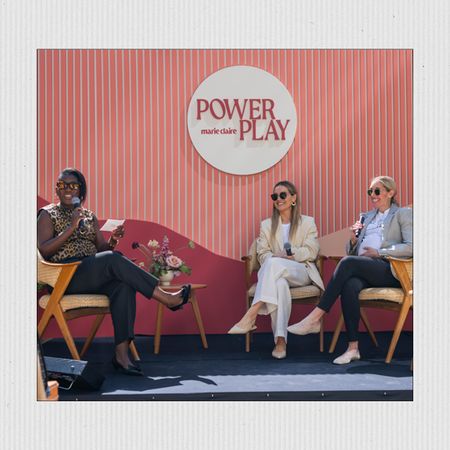Meet the Extensionists: People Who Believe Immortality Is Possible
Forget about life after death. More and more, women around the country are seeking another kind of miracle: not dying at all.


What if you could hit the pause button on aging? Live to 120 without feeling a day over 80? More radical still, what if you could cheat death? Would you do it?
“Life extensionists” would. That’s the name modern immortality seekers now go by, and devotees range from those who’d like to live healthier lives into old age to the more extreme, who ardently believe that humans can, and should, overcome death the same way we’ve overcome, say, smallpox or tooth decay.
Life expectancy for women in the United States has risen steadily from 73 in the 1960s to 81 today, with those numbers continuing to increase thanks to a combination of biology and higher standards of living (not to mention the over 1,000 geneticists and biologists working in the longevity field). But life extensionists want more. They want to be cognitively and physically healthy for decades, if not centuries.
"I do everything it takes to be here forever.”
Extensionist is, by nature, an ambiguous term. The spectrum ranges from health nuts to scientists who want to slow down, or possibly reverse, aging through processes like cell regeneration. And, overall, the movement is growing—especially among the Silicon Valley set and Goop enthusiasts. The pitch for immortality is everywhere: from supplement companies like Elysium Health (which markets an antiaging product called Basis that contains ingredients like a variation of vitamin B3 and the same antioxidant that’s present in blueberries, and receives advice and input from a star-studded board of Nobel laureates and researchers) to startups like Nootrobox, selling nootropics (aka “brain drugs”)—said to enhance and sharpen cognitive function—to diet fads like buttered coffee (the low-toxin beans and added fat will purportedly make you live longer and boost your IQ, though how, exactly, has never been explained in a clinical trial). Elysium alone raised $20 million in a single round of funding and now has a subscriber base numbering in the tens of thousands, while Bulletproof, the company that popularized the buttered-coffee trend, recently raised $19 million to support its rapid growth. It’s all just a small part of the booming wellness industry, which has become a roughly $3.7 trillion market.
Dray Carson speaks about the possibilities of living forever with the cheerful earnestness of a caffeinated SoulCycle instructor. (For the record, she takes her coffee with cinnamon, ghee butter, and coconut oil to control her blood-glucose levels and to teach her body to burn fat instead of carbohydrates for fuel.) Carson—a 38-year-old entrepreneur and co-owner of the KaiZen Medical Group integrative-care clinic based in Scottsdale, Arizona—has devoted her life to the idea that human beings can radically change the aging process through behavior. Carson believes she can live past the known upper limits of age, even forever. And she’s game to try almost anything to get there—from diet to exercise to less traditional methods like stem-cell therapy: the use of stem cells to treat or prevent various conditions through transplants or injections. The therapy has most recently been tested for its ability to reverse cognitive disorders and diabetes. (Research on its effectiveness is still ongoing.)

Carson is a member of People Unlimited, a Scottsdale-based organization that "promotes unlimited life,” founded 30 years ago by Bernadeane Brown, whose husband died in October 2014 (yes, irony noted). The couple built a business preaching the idea that death is simply a problem to be solved. Brown, now 80, doesn’t have a solution, per se, but her organization has attracted hundreds of followers over the years, many of whom spend thousands of dollars on membership dues (a full yearly membership costs $2,940) and events like the yearly RAAD Fest, or the Revolution Against Aging and Death, which features speakers from around the world—from self-described futurist José Cordeiro of the Silicon Valley think tank Singularity University, to Zoltan Istvan, the “transhumanist” presidential candidate who tours the country in a coffin-shaped “Immortality Bus.”
The field of aging research has advanced significantly in the past few decades. Scientists have discovered specific longevity genes that select for long lives; lifestyle adjustments that, statistically, improve your chances of living longer; and new ways in which existing drugs—the diabetes medication Metformin, for instance—can influence rates of aging.
Stay In The Know
Get exclusive access to fashion and beauty trends, hot-off-the-press celebrity news, and more.
Those discoveries require financial support to really make an impact—and the movement has a lot of money behind it. Physician and Silicon Valley investor Joon Yun has offered prizes totaling $1 million to whoever can “hack the code” of aging. Peter Thiel, billionaire venture capitalist and founder of the Thiel Fellowship, has spent millions of dollars funding startups devoted to reverse-engineering death and has shown an interest in receiving blood transfusions from a younger “host” to reset age-related symptoms in the circulatory system, a process akin to parabiosis. Amy Wagers, a professor of stem-cell and regenerative biology at the Harvard Stem Cell Institute, was the first to discover in 2013 that parabiosis, fusing two individuals anatomically, could improve muscle, heart, and lung function in mice. There is even a highly controversial early private clinical trial involving humans, run by a company based in Monterey, California, called Ambrosia, in which participants pay $8,000 for a single plasma treatment from a younger host. So far, at least 30 individuals, all older than age 35, have been treated, and the director of the test, Jesse Karmazin, says they all report improvements in appearance, exercise ability, and memory.
RELATED STORIES


Dave Asprey, founder of the Bulletproof franchise, announced last November that his goal is to live to 180. “More than 15 years and hundreds of thousands of dollars have gone into personally hacking my body, brain, and performance on a cellular level,” says Asprey. “This has involved years of my own research, self-experimentation.” His latest venture, FATwater—an energy drink composed of deionized water, B vitamins, and something called Brain Octane Oil sourced from coconut oil—hit the market earlier this year for $3 per bottle.
Perhaps it was inevitable that Google joined the enterprise, launching an independent biotech firm called Calico, short for California Life Company, to “increase our understanding of the biology that controls life span,” as its cryptic website explains. In 2014, the company lured molecular biologist and aging expert Cynthia Kenyon away from her professorship at the University of California, San Francisco, to serve as vice president of aging research. And just this spring, the company partnered with C4 Therapeutics, which studies proteins, to develop drugs for age-related diseases.
Carson believes she can live past the known upper limits of age, even forever. And she’s game to try anything to get there.
It all sounds a bit like science fiction, and at this point, some of it likely still is. “Those of us in aging research have defined about seven to nine processes that are important for aging,” says Ana Maria Cuervo. Cuervo is a molecular biologist at the Albert Einstein College of Medicine who specializes in aging and is one of the leading experts on cellular cleaning (the process through which the body repairs damaged cells by breaking down bad proteins and turning them into energy, which often slows with age). “It’s possible some of these ‘popular’ interventions have beneficial effects, but it will be important to investigate the effect they have on these pillars of aging,” she says. For Cuervo, extending the health of patients rather than simply the length of their lives is more important: “I think this is an area where there is a lot of room for intervention.”
There isn’t much that People Unlimited member Brittany Bejarano, a 30-year-old sports nutritionist and personal trainer in Phoenix, does that isn’t about living forever. Bejarano regularly takes a range of supplements—collagen, Pycnogenol for vein and blood-vessel strength, vitamin D to regulate her brain health and hormones, L-glutamine for enzyme production, and better-known supplements such as omega-3 fish oil—many of which are produced by a research organization called Life Extension. The brand sells everything from amino acids to “produce an endothelial-derived relaxing factor” (to relax smooth muscles, in layman’s terms) to pet probiotics. Bejarano has also done next-level physicals to determine which foods would provide her with the most nutritional benefits and undergoes yearly blood tests to keep her hormones in balance, among other things.
La Jolla, California, clinical research facility Health Nucleus offers similar testing—an eight-hour physical exam that includes a full-body MRI, blood testing, genome sequencing, and more—for $25,000. Human Longevity Inc., a health venture based in San Diego, focuses on building a comprehensive database of human data through “state-of-the-art DNA sequencing and expert analysis with machine learning” to advance both biological science and provide data to individuals so they can make more-informed health choices. The company offers a $2,500 DNA-sequencing test and report, HLIQ Whole Genome, which is done by drawing blood and must be ordered by a physician, that compares an individual’s DNA to its database to do just that. Human Longevity Inc. has received roughly $300 million in funding. Other companies, like Goop Wellness and 23andMe, offer everything from antiaging supplements to genetic-predisposition data designed to inform lifestyle choices.
“I want to make sure I am giving my organs the right kind of nutrients I need to be here and to support that,” Bejarano explains. “From that perspective, I feel like I do everything it takes to be here forever.”
Living to infinity and beyond isn’t for everyone. “That’s a pretty broad thing to be able to claim that you’re going to live forever,” says Rachel Perlman, 48, who works as a distributor for a nutrient company called LifeVantage and lives in Washington, D.C. “But there are things out there that are really going to change longevity.” Perlman is more interested in living to maybe 100, as long as she’s healthy the whole time. In addition to taking a LifeVantage product called Protandim, which claims to combat oxidative stress, and another called PhysIQ, which promises to be a “total lifestyle platform” to transform your body, she uses a $2,000 infrared sauna every day to detox her cells. “[Cell detox] is a big part of extending our life,” she says. This has yet to be proved, but the idea, an extension of the juice- and colon-cleanse movement, is catching on—several yoga studios in New York and Los Angeles have started using them in place of heaters for hot classes.
Kristen Willeumier, a 45-year-old neuroscientist based in Los Angeles, is currently working on a book about longevity and the brain. She first learned about life extension while studying the molecular mechanisms underlying a genetic form of Parkinson’s disease at UCLA. “I learned about the powerful role diet, lifestyle, and nutrition have on health and well-being, and the modifiable risk factors we can implement to extend our life span,” she says. “I’ve been fortunate to be involved in research that demonstrates we can slow down the aging process in the brain, which gives me optimism that living a long life while preserving the mind is possible.”

For her, this means a routine centered on mindfulness and physical health. Her daily nutrient regimen: “Vitamin B to support the central nervous system, vitamin C to support immune health, vitamin D to support brain function, magnesium to relax the nervous system, spirulina as a superfood and vegan source of omega-3 fatty acids, and probiotics to support microbe health,” she says. “I’ve also recently been using intermittent fasting to support cellular and mitochondrial health.”
The end result, hopefully: a long life with vitality and a sense of purpose, while maintaining her mental and physical health. “My great-grandfather lived to 101,” Willeumier says. “I aspire to live to that age, but I want to do it with grace and ease, and without having to experience the diseases associated with aging.”
“Aging is just a disease.”
The human desire to circumvent aging and death isn’t new. For Tom Johnson, a professor of behavioral genetics and integrative physiology at the University of Colorado, Boulder, this sentiment has translated into four decades’ worth of work in the field of longevity. He was one of the first scientists to ascertain that gene mutations were responsible for longer life spans in roundworms.
Johnson’s focus is on increasing health span, rather than life span—manipulating the number of years that humans could live long, healthy lives. It’s a view shared by much of the field, most of whom are skeptical about the idea of “solving” death. The general consensus is that an age-slowing drug will be the first breakthrough, a pill that extends life by targeting certain age-related genes and reducing the amount of time people suffer from age-related diseases. “The fight for immortality—whether it is spiritual or physical or in a computer system—all of that comes from the fear of the unknown after death,” Johnson says. “Life is great. I have no desire to take a shot at whether there is something beyond.”
RELATED STORIES


For Willeumier, it isn’t aging that worries her—it’s the side effects. The fear of losing cognition and health more than the fear of death itself motivates her work. People Unlimited member Carson, by contrast, genuinely sees death as an abstract concept, frightening because it removes the endless possibilities of life. “Aging is just a disease,” she explains as if it is the most ecumenical thing in the world. She believes there are enough brilliant people out there, innovating and thinking, that the concerns of hypothetical immortality—like overpopulation and environmental stress—would be nonissues.
In the meantime, it’s much more likely that small steps toward extending health span rather than a solution for human mortality will be the way in which humans defy the convention of aging. Whether that comes from subtle genetic alterations, a drug to reverse degenerative diseases, or universal improvements in diet and exercise, however, is the question motivating researchers. “I think the fascination [with immortality] comes from the fact that it’s the area of science that is most wished for and that we’re the least capable of achieving,” says Johnson. “It’s the natural extension of the human spirit. We don’t want to go away meekly.”
This article appears in the October of Marie Claire, on newsstands now.
-
 Prince Harry’s Ex, Cressida Bonas, Is Launching a Podcast and Princess Eugenie Is Already Lined Up as a Guest
Prince Harry’s Ex, Cressida Bonas, Is Launching a Podcast and Princess Eugenie Is Already Lined Up as a GuestOther famous faces in the podcast's launch announcement video include Kate Winslet, Mary Berry, and Camilla Alves McConaughey.
By Kayleigh Roberts Published
-
 Hailey Bieber Pairs a Celebrity-Beloved Bag With $450 Flip-Flops for Date Night
Hailey Bieber Pairs a Celebrity-Beloved Bag With $450 Flip-Flops for Date NightThe model kept it new-parent-casual for her date night with her husband, Justin Bieber.
By Kayleigh Roberts Published
-
 'The Residence' Is a White House-Set Whodunit, But Where Was It Really Filmed?
'The Residence' Is a White House-Set Whodunit, But Where Was It Really Filmed?The Shondaland-produced Netflix series pulled off the largest-ever recreation of the Executive Mansion.
By Quinci LeGardye Published
-
 There's a Huge Gap in Women's Healthcare Research—Perelel Wants to Change That
There's a Huge Gap in Women's Healthcare Research—Perelel Wants to Change ThatThe vitamin company has pledged $10 million to help close the research gap, and they joined us at Power Play to talk about it.
By Nayiri Mampourian Published
-
 37 Stress-Relieving Gifts That Will Put Anyone at Ease
37 Stress-Relieving Gifts That Will Put Anyone at EaseThe pandemic burnout is real.
By Rachel Epstein Published
-
 BetterMe Will Make Your New Year’s Resolutions Last the Other 12 Months
BetterMe Will Make Your New Year’s Resolutions Last the Other 12 MonthsSponsored BetterMe: Health Coaching uses a psychology-based program to approach your health goals from all angles, so they stay within reach.
By Sponsored Published
-
 Everlywell's At-Home Test Kits Are 40% Off
Everlywell's At-Home Test Kits Are 40% OffThe testing company is offering big savings on some of their most popular kits.
By The Editors Published
-
 Senator Klobuchar: "Early Detection Saves Lives. It Saved Mine"
Senator Klobuchar: "Early Detection Saves Lives. It Saved Mine"Senator and breast cancer survivor Amy Klobuchar is encouraging women not to put off preventative care any longer.
By Senator Amy Klobuchar Published
-
 I'm an Egg Donor. Why Was It So Difficult for Me to Tell People That?
I'm an Egg Donor. Why Was It So Difficult for Me to Tell People That?Much like abortion, surrogacy, and IVF, becoming an egg donor was a reproductive choice that felt unfit for society’s standards of womanhood.
By Lauryn Chamberlain Published
-
 The 20 Best Probiotics to Keep Your Gut in Check
The 20 Best Probiotics to Keep Your Gut in CheckGut health = wealth.
By Julia Marzovilla Published
-
 Simone Biles Is Out of the Team Final at the Tokyo Olympics
Simone Biles Is Out of the Team Final at the Tokyo OlympicsShe withdrew from the event due to a medical issue, according to USA Gymnastics.
By Rachel Epstein Published
